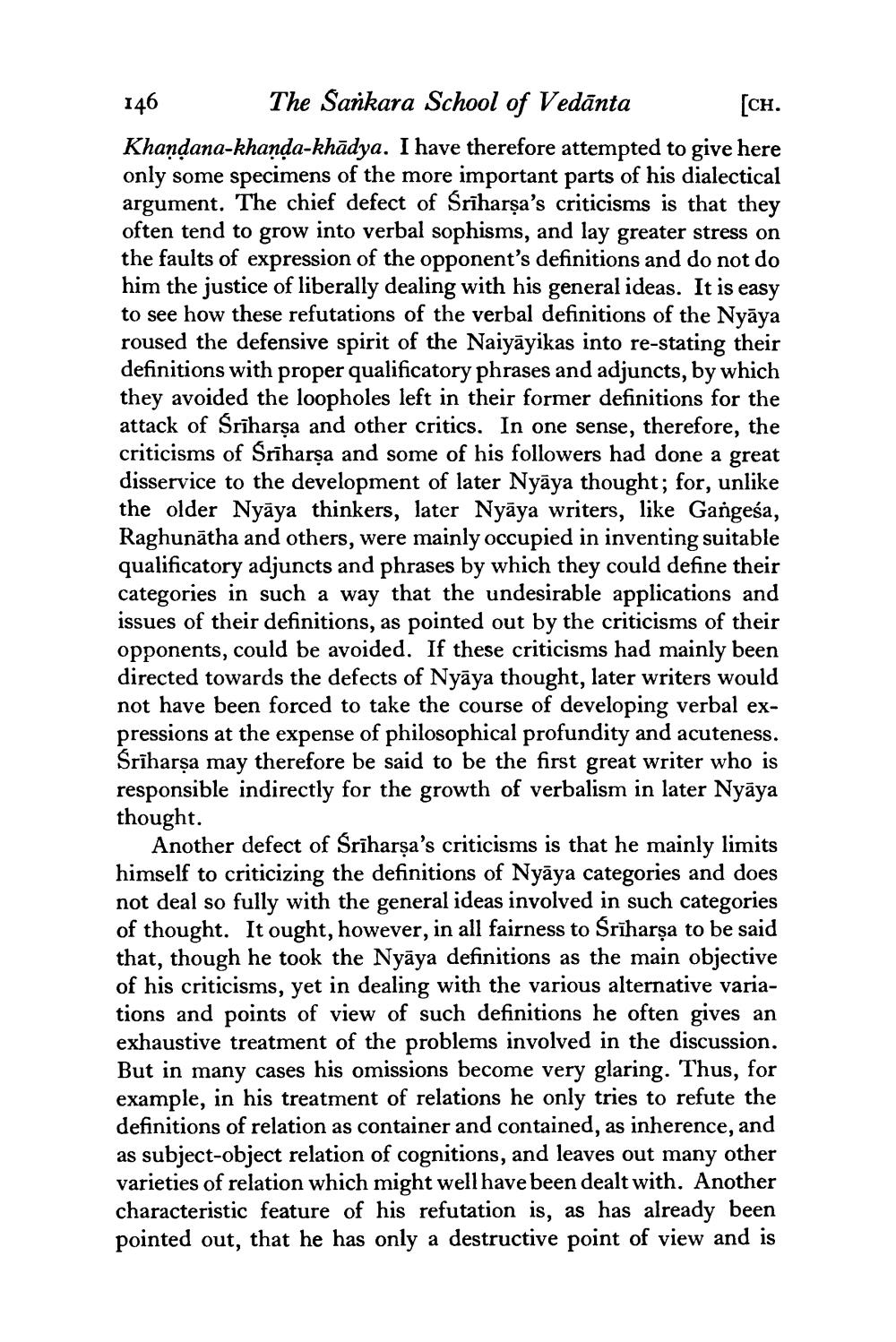________________
146
[CH.
The Sankara School of Vedānta Khandana-khanda-khādya. I have therefore attempted to give here only some specimens of the more important parts of his dialectical argument. The chief defect of Śrīharşa's criticisms is that they often tend to grow into verbal sophisms, and lay greater stress on the faults of expression of the opponent's definitions and do not do him the justice of liberally dealing with his general ideas. It is easy to see how these refutations of the verbal definitions of the Nyāya roused the defensive spirit of the Naiyāyikas into re-stating their definitions with proper qualificatory phrases and adjuncts, by which they avoided the loopholes left in their former definitions for the attack of Śrīharşa and other critics. In one sense, therefore, the criticisms of Śrīharsa and some of his followers had done a great disservice to the development of later Nyāya thought; for, unlike the older Nyāya thinkers, later Nyāya writers, like Gangesa, Raghunātha and others, were mainly occupied in inventing suitable qualificatory adjuncts and phrases by which they could define their categories in such a way that the undesirable applications and issues of their definitions, as pointed out by the criticisms of their opponents, could be avoided. If these criticisms had mainly been directed towards the defects of Nyāya thought, later writers would not have been forced to take the course of developing verbal expressions at the expense of philosophical profundity and acuteness. Śrīharşa may therefore be said to be the first great writer who is responsible indirectly for the growth of verbalism in later Nyāya thought.
Another defect of Sriharşa's criticisms is that he mainly limits himself to criticizing the definitions of Nyāya categories and does not deal so fully with the general ideas involved in such categories of thought. It ought, however, in all fairness to Śrīharşa to be said that, though he took the Nyāya definitions as the main objective of his criticisms, yet in dealing with the various alternative variations and points of view of such definitions he often gives an exhaustive treatment of the problems involved in the discussion. But in many cases his omissions become very glaring. Thus, for example, in his treatment of relations he only tries to refute the definitions of relation as container and contained, as inherence, and as subject-object relation of cognitions, and leaves out many other varieties of relation which might well have been dealt with. Another characteristic feature of his refutation is, as has already been pointed out, that he has only a destructive point of view and is




